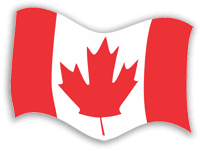
#4 The House of Commons
by Norman Hillmer
| On December 11, 1979, John Crosbie entered the House of Commons
in grey and black sealskin boots from his native Newfoundland,
following the tradition that Ministers of Finance wear new shoes
when they present the government’s economic forecast. It was
Crosbie’s first budget speech, and it was to be his last. Crosbie’s budget promised higher energy prices and increased taxes. These were tough measures, and likely to be unpopular in many quarters, but Crosbie and Prime Minister Joe Clark were confident. Their Conservative party had won the federal election only months before, unseating the Liberals of Pierre Trudeau, and Trudeau who had announced that he would soon leave the party leadership was clearly uninterested in leading the parliamentary opposition. The New Democrats and the Quebec Créditistes were also badly bruised. Both had lost a substantial number of their House of Commons seats on election night. The media and business reviews of the Crosbie budget were generally positive. It was Christmas time on Parliament Hill, with the holidays coming. Surely a favourable Commons vote on the budget was only a formality. Yet Clark had fewer than half of the 282 seats in the Commons. To pass the budget, he needed help from one of the other parties. The New Democrats, angered by an increase of four cents a litre in the excise tax on gasoline, moved a motion of no confidence in the government. The Liberals supported the New Democrats, while the Créditistes abstained. And that was it — enough to bring down the government. Clark lost the motion by six votes. Defeated in the House of Commons on an essential part of his political program, Clark immediately requested that the Governor General dissolve Parliament and call an election. This was done, and in February 1980 the voters threw Clark out of office. A resurrected Pierre Trudeau returned as Prime Minister of Canada. The Conservatives had ignored the most fundamental principle of Canadian parliamentary democracy. A prime minister cannot continue in office without the support of a majority of the members of the House of Commons. Clark’s party did not have sufficient backing to govern on its own. The House of Commons is made up of Members of Parliament, or MPs, elected across the provinces and territories of Canada roughly on the basis of representation by population. The prime minister and almost all the cabinet come from the Commons; the executive that administers the nation’s business is not a separate branch of government, as is the case in the United States. The Commons operates as a national forum for the clash of political ideas and priorities. Government members sit on one side of the Commons chamber, at the right hand of the Speaker, the Commons umpire. The opposition sits opposite, only a few metres away. The competition is intense, giving rise to the worst in partisan misbehaviour, but also encouraging legitimate debate and scrutiny of the government. Question Period, held every weekday when the House is in session and widely broadcast on television, allows the opposition to demand that the government respond to difficult questions. It is messy, chaotic, often nasty, and answers frequently do not come, but Question Period demands that the prime minister and his party justify their actions and policies. In the British House of Commons, the model for Canada’s Commons, prime ministers are given the questions in advance, and they attend Question Period only once a week. Not so in Canada, where the prime minister and cabinet members appear regularly and have no knowledge of the questions beforehand. No law can be made and no tax imposed without the approval of the House of Commons, Canada’s chief legislative body. However, members of parliament are expected to vote with their leaders in the House of Commons, and MPs who do not are subject to strict party discipline. Individual MPs can make their voices heard through committee work and in political party settings, but it is difficult to stand apart from the crowd or become known to the public. When they stepped a short distance from Parliament, the sharp-tongued Pierre Trudeau said early on in his first term as prime minister, members of the House were of no consequence. Long-serving prime ministers from Trudeau on have dominated the levers of power, so much so that political commentators frequently compare them to American presidents. Yet, unlike presidents, prime ministers control their legislatures and can name senators and Supreme Court judges. The tight grip of prime ministers on government is sometimes described as an elected dictatorship. The House of Commons, though, is at its best the people’s legislature, reflecting, representing, and expressing popular needs and opinions. And sometimes it can be more than that, particularly when no single party is fully in command. Just ask Joe Clark and John Crosbie. Norman Hillmer is Professor of History and International Affairs at Carleton University. Further Reading: Robert J. Jackson and Doreen Jackson have a clear description of the House of Commons in their Canadian Government in Transition (Toronto: Pearson Prentice Hall, 2006). Next Instalment: The Senate The Canadian Experience is a 52-week history series designed to tell the story of our country to all Canadians. Sponsored by Multimedia Nova Corporation and Diversity Media Services/Lingua Ads partners, the series features articles by our country’s foremost historians on a wide range of topics. Past articles and author bios are available at http://www.cdnexperience.ca. The Canadian Experience is copyright © 2010-2011 Multimedia Nova Corporation. |
List of published "Canadian Experience" articles |
The Canadian Experience communicates to us
about the many facets of Canada, the people, the Charter, brings us
reality and creates understanding.
Copyright ©2010 Echoworld Communications. All rights
reserved

